China has unveiled its most advanced quantum computer, the ‘Tianyan-504,’ featuring a 504-qubit chip named ‘Xiaohong’



PRESS RELEASE — Thirty years ago, the University of the Andes made the first internet connection in Colombia, and on Tuesday, December 3, the country’s first quantum computer will be unveiled. This acquisition marks a turning point in education and technological research, fostering interdisciplinary collaboration and enhancing ongoing efforts by researchers at the University of the Andes and other institutions.
The University’s Faculties of Science and Engineering announced the arrival of the device, which will enable students and professors to explore fundamental aspects of quantum computing. This emerging technology seeks to solve problems and process information differently by leveraging the laws of quantum physics.
Professor Julián Rincón, a theoretical physicist, explains that this quantum computer employs a technique known as Nuclear Magnetic Resonance and operates at room temperature. This makes it particularly suitable for educational purposes, as it is easy to assemble and provides a straightforward way to test fundamental concepts. “This isn’t just a faster conventional computer; it’s a completely new way of processing information, based on the laws of quantum physics,” he clarifies.
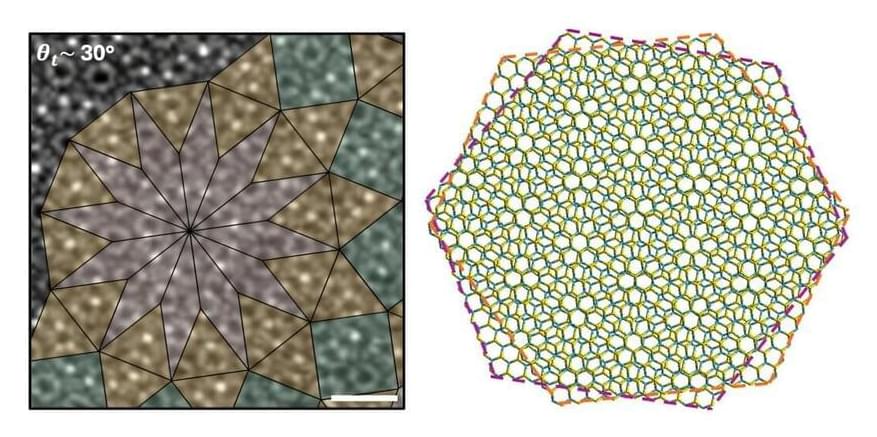
A new vortex electric field with the potential to enhance future electronic, magnetic and optical devices has been observed by researchers from City University of Hong Kong (CityUHK) and local partners.
The research, “Polar and quasicrystal vortex observed in twisted-bilayer molybdenum disulfide” published in Science, is highly valuable as it can upgrade the operation of many devices, including strengthening memory stability and computing speed.
With further research, the discovery of the vortex electric field can also impact the fields of quantum computing, spintronics, and nanotechnology.
Learn science, computer science, and mathematics in the easiest and most engaging way possible with Brilliant! First 30 days are free and 20% off the annual premium subscription when you use our link ➜ https://brilliant.org/sabine.
Mathematician Stephen Wolfram has attempted to develop a theory of everything using hypergraphs, which are essentially sets of graphs that can describe space-time. Recently, another mathematician named Jonathan Gorard has used hypergraphs to describe what happens if a black hole accretes matter. He claims that evidence for hypergraphs should be observable in the energy that is emitted during the accretion. Big if true, as they say. Let’s take a look.
Paper: https://arxiv.org/abs/2402.
🤓 Check out my new quiz app ➜ http://quizwithit.com/
💌 Support me on Donorbox ➜ https://donorbox.org/swtg.
📝 Transcripts and written news on Substack ➜ https://sciencewtg.substack.com/
👉 Transcript with links to references on Patreon ➜ / sabine.
📩 Free weekly science newsletter ➜ https://sabinehossenfelder.com/newsle…
👂 Audio only podcast ➜ https://open.spotify.com/show/0MkNfXl…
🔗 Join this channel to get access to perks ➜
/ @sabinehossenfelder.
🖼️ On instagram ➜ / sciencewtg.
#science #sciencenews #physics #blackholes
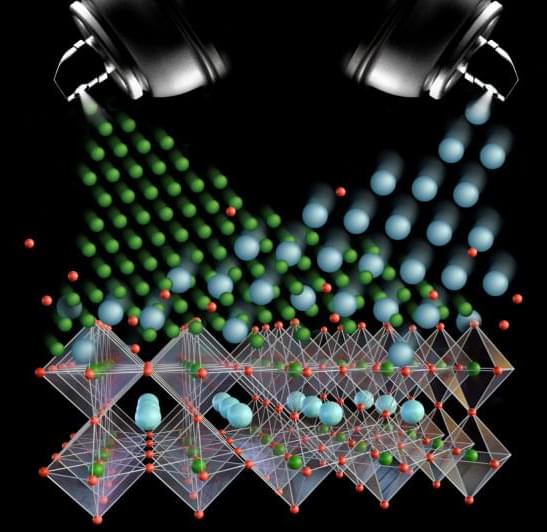
What’s the best way to precisely manipulate a material’s properties to the desired state? It may be straining the material’s atomic arrangement, according to a team led by researchers at Penn State. The team discovered that “atomic spray painting” of potassium niobate, a material used in advanced electronics, could tune the resulting thin films with exquisite control.
The finding, published in Advanced Materials (“Colossal Strain Tuning of Ferroelectric Transitions in KNbO 3 Thin Films”), could drive environmentally friendly advancements in consumer electronics, medical devices and quantum computing, the researchers said.
The process, called strain tuning, alters a material’s properties by stretching or compressing its atomic unit cell, which is the repeating motif of atoms that builds up its crystal structure. The researchers use molecular beam epitaxy (MBE), a technique that involves depositing a layer of atoms on a substrate to form a thin film. In this case, they produced a thin film of strain-tuned potassium niobate.
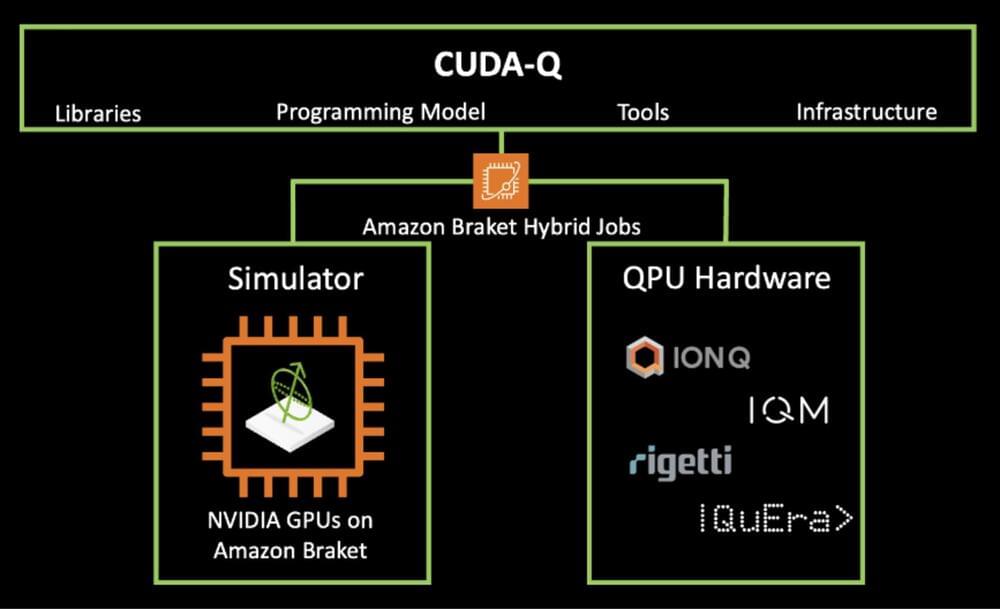
AWS and NVIDIA are teaming up to address one of the biggest challenges in quantum computing: integrating classical computing into the quantum stack, according to an AWS Quantum Technologies blog post. This partnership brings NVIDIA’s open-source CUDA-Q quantum development platform to Amazon Braket, enabling researchers to design, simulate and execute hybrid quantum-classical algorithms more efficiently.
Hybrid computing — where classical and quantum systems work together — is actually a facet of all quantum computing applications. Classical computers handle tasks like algorithm testing and error correction, while quantum computers tackle problems beyond classical reach. As quantum processors improve, the demand for classical computing power grows exponentially, especially for tasks like error mitigation and pre-processing.
The collaboration between AWS and NVIDIA is designed to ease this transition by providing researchers with seamless access to NVIDIA’s CUDA-Q platform directly within Amazon Braket. This integration allows users to test their programs using powerful GPUs, then execute the same programs on quantum hardware without extensive modifications.

Spontaneous parametric down-conversion (SPDC) and spontaneous four-wave mixing are powerful nonlinear optical processes that can produce multi-photon beams of light with unique quantum properties. These processes could be leveraged to create various quantum technologies, including computer processors and sensors that leverage quantum mechanical effects.
Researchers at the National Research Council of Canada and École Polytechnique de Montréal recently carried out a study observing the effects emerging in the SPDC process. Their paper, published in Physical Review Letters, reports the observation of a gain-induced group delay in multi-photon pulses generated in SPDC.
“The inspiration for this paper came from studying a process called SPDC,” Nicolás Quesada, senior author of the paper, told Phys.org. “This is a mouthful to say that certain materials are able to take a violet photon (the particle light is made of) and transform it into two red photons.
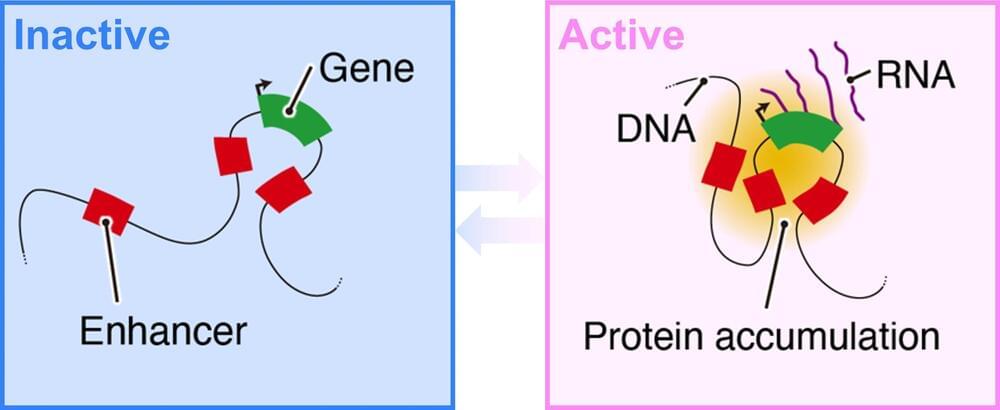
Researchers at Kyushu University have revealed how spatial distance between specific regions of DNA is linked to bursts of gene activity. Using advanced cell imaging techniques and computer modeling, the researchers showed that the folding and movement of DNA, as well as the accumulation of certain proteins, changes depending on whether a gene is active or inactive.
The study, published on December 6 in Science Advances, sheds insight into the complicated world of gene expression and could lead to new therapeutic techniques for diseases caused by improper regulation of gene expression.
Gene expression is a fundamental process that occurs within cells, with two main phases: transcription, where DNA is copied into RNA, and translation, where the RNA is used to make proteins. For each cell to carry out its specific functions in the body, or to respond to changing conditions, the right amount of a protein must be produced at the right time, meaning genes must be carefully switched on and off.
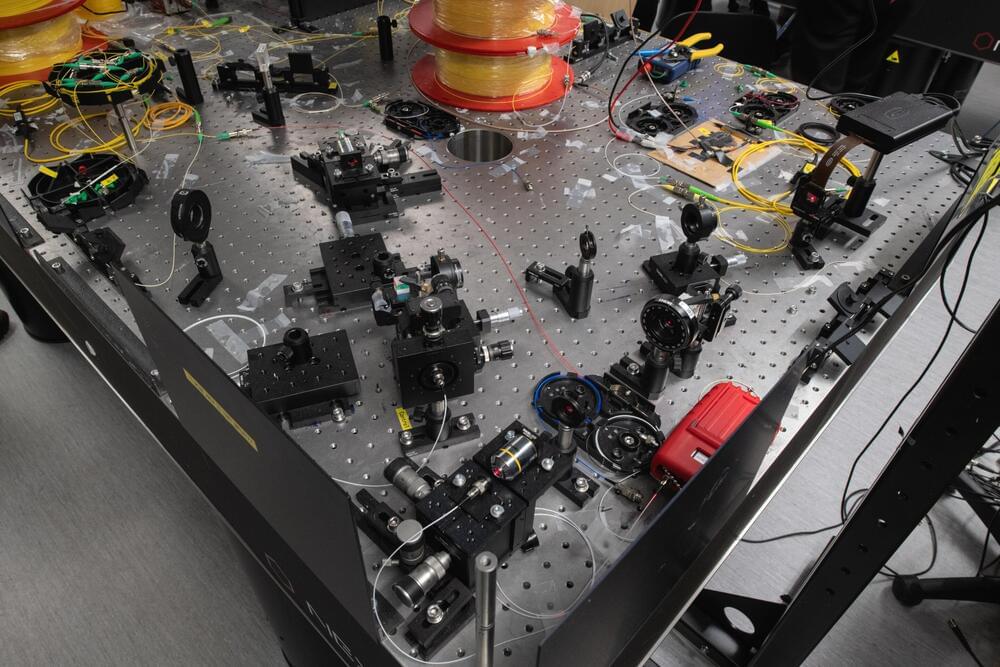
Researchers from Linköping University together with colleagues from Poland and Chile have confirmed a theory that proposes a connection between the complementarity principle and entropic uncertainty. Their study is published in the journal Science Advances.
“Our results have no clear or direct application right now. It’s basic research that lays the foundation for future technologies in quantum information and quantum computers. There’s enormous potential for completely new discoveries in many different research fields,” says Guilherme B Xavier, researcher in quantum communication at Linköping University, Sweden.
But to understand what the researchers have shown, we need to start at the beginning.

Major findings on the inner workings of a brittle star’s ability to reversibly control the pliability of its tissues will help researchers solve the puzzle of mutable collagenous tissue (MCT) and potentially inspire new “smart” biomaterials for human health applications.
The work is directed by Denis Jacob Machado—assistant professor in Bioinformatics at The University of North Carolina at Charlotte Center for Computational Intelligence to Predict Health and Environmental Risks (CIPHER)—and Vladimir Mashanov, staff scientist at Wake Forest Institute for Regenerative Medicine.
In “Unveiling putative modulators of mutable collagenous tissue in the brittle star Ophiomastix wendtii: an RNA-Seq analysis,” published recently in BMC Genomics, the researchers describe using advanced transmission electron microscopy (TEM), RNA sequencing, and other bioinformatics methods to identify 16 potential MCT modulator genes. This research offers a breakthrough towards understanding precisely how echinoderms quickly and drastically transform their collagenous tissue. The first author of the paper, Reyhaneh Nouri, is a Ph.D. student in UNC Charlotte’s Department of Bioinformatics and Genomics.